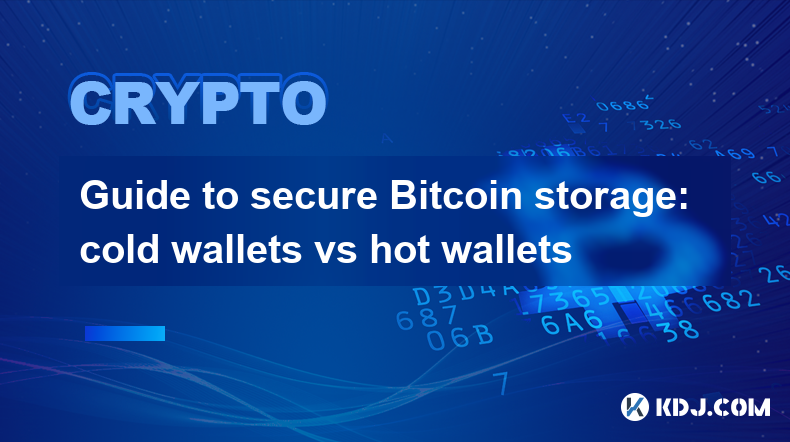-
 Bitcoin
Bitcoin $84,473.7362
1.10% -
 Ethereum
Ethereum $1,616.2066
1.57% -
 Tether USDt
Tether USDt $0.9996
0.02% -
 XRP
XRP $2.1579
5.05% -
 BNB
BNB $592.9954
0.65% -
 Solana
Solana $129.1197
3.66% -
 USDC
USDC $0.9998
-0.02% -
 Dogecoin
Dogecoin $0.1646
1.18% -
 TRON
TRON $0.2477
-0.22% -
 Cardano
Cardano $0.6440
1.91% -
 UNUS SED LEO
UNUS SED LEO $9.3598
0.00% -
 Chainlink
Chainlink $12.9547
1.30% -
 Avalanche
Avalanche $20.0105
4.73% -
 Sui
Sui $2.3213
4.54% -
 Stellar
Stellar $0.2436
2.82% -
 Shiba Inu
Shiba Inu $0.0...01236
0.46% -
 Hedera
Hedera $0.1713
1.70% -
 Toncoin
Toncoin $2.8951
-0.37% -
 Bitcoin Cash
Bitcoin Cash $340.1663
8.54% -
 MANTRA
MANTRA $6.2880
-1.52% -
 Litecoin
Litecoin $78.4675
2.81% -
 Polkadot
Polkadot $3.6529
1.99% -
 Dai
Dai $1.0000
0.00% -
 Hyperliquid
Hyperliquid $15.9526
0.72% -
 Bitget Token
Bitget Token $4.3724
-0.28% -
 Pi
Pi $0.7495
11.93% -
 Ethena USDe
Ethena USDe $0.9990
0.02% -
 Monero
Monero $209.4105
1.05% -
 Uniswap
Uniswap $5.4287
2.42% -
 OKB
OKB $53.8863
1.83%
What is Bitcoin fork? Differences between BTC, BCH, and BSV
Bitcoin forks like BCH and BSV, resulting from hard forks, aim to improve scalability and transaction speed, diverging from BTC's original protocol.
Apr 10, 2025 at 02:21 am

A Bitcoin fork refers to a change in the underlying protocol of the Bitcoin blockchain, which results in a divergence into two separate versions of the blockchain. This can happen as a result of a disagreement within the community about the direction of the cryptocurrency, or to introduce new features or improvements. There are two main types of forks: soft forks and hard forks. Soft forks are backward-compatible changes that do not require all nodes to upgrade, whereas hard forks are non-backward-compatible changes that require all nodes to upgrade to the new version.
What is a Hard Fork?
A hard fork is a significant change to the protocol of a blockchain network that results in a permanent divergence from the previous version of the blockchain. When a hard fork occurs, all nodes and users must upgrade to the new version of the software to continue participating in the network. If some users do not upgrade, they will continue to operate on the old blockchain, effectively creating two separate blockchains. Bitcoin Cash (BCH) and Bitcoin SV (BSV) are examples of hard forks from the original Bitcoin (BTC) blockchain.
Bitcoin (BTC)
Bitcoin (BTC) is the original cryptocurrency that was created by an anonymous person or group using the pseudonym Satoshi Nakamoto in 2009. It operates on a decentralized network of computers that maintain a public ledger of all transactions, known as the blockchain. Bitcoin's primary purpose is to serve as a peer-to-peer electronic cash system, enabling users to send and receive payments without the need for intermediaries like banks.
Bitcoin's protocol has undergone several soft forks and one significant hard fork, which led to the creation of Bitcoin Cash. The original Bitcoin blockchain continues to be the most widely used and recognized cryptocurrency, with the largest market capitalization and the most extensive network of users and miners.
Bitcoin Cash (BCH)
Bitcoin Cash (BCH) is a hard fork of the Bitcoin blockchain that occurred on August 1, 2017. The primary motivation behind the creation of Bitcoin Cash was to address the issue of scalability and transaction speed on the Bitcoin network. Bitcoin Cash increased the block size limit from 1 MB to 8 MB, allowing for more transactions to be processed per block and, therefore, increasing the throughput of the network.
Bitcoin Cash aims to be a more scalable and user-friendly version of Bitcoin, focusing on its use as a medium of exchange rather than a store of value. It retains many of the same features as Bitcoin, including the use of the SHA-256 hashing algorithm and the Proof of Work (PoW) consensus mechanism.
Bitcoin SV (BSV)
Bitcoin SV (BSV), which stands for Bitcoin Satoshi Vision, is a hard fork of Bitcoin Cash that occurred on November 15, 2018. The fork was initiated by Craig Wright and Calvin Ayre, who believed that Bitcoin Cash had deviated from the original vision of Bitcoin as outlined by Satoshi Nakamoto. Bitcoin SV aimed to restore this vision by increasing the block size limit to 128 MB and removing certain features that they believed were not part of the original Bitcoin protocol.
Bitcoin SV focuses on scalability and the ability to handle a high volume of transactions at low fees. It also aims to enable more complex smart contract functionalities and data storage on the blockchain, positioning itself as a platform for enterprise-level applications.
Differences Between BTC, BCH, and BSV
The differences between BTC, BCH, and BSV are primarily related to their block size limits, transaction speeds, and intended use cases. Here is a detailed comparison of these three cryptocurrencies:
Block Size Limit: Bitcoin (BTC) has a block size limit of 1 MB, Bitcoin Cash (BCH) increased this to 8 MB, and Bitcoin SV (BSV) further increased it to 128 MB. The larger block size allows for more transactions to be processed per block, increasing the scalability of the network.
Transaction Speed and Fees: Due to its larger block size, Bitcoin Cash can process more transactions per second than Bitcoin, resulting in faster transaction times and lower fees. Bitcoin SV aims to further improve transaction speed and reduce fees by increasing the block size even more.
Intended Use Case: Bitcoin (BTC) is often seen as a store of value and a long-term investment, while Bitcoin Cash (BCH) focuses on being a practical medium of exchange for everyday transactions. Bitcoin SV (BSV) aims to be a platform for enterprise-level applications, enabling complex smart contracts and data storage on the blockchain.
Community and Support: Bitcoin (BTC) has the largest and most established community, with widespread adoption and support from businesses and institutions. Bitcoin Cash (BCH) and Bitcoin SV (BSV) have smaller but dedicated communities that support their respective visions for the future of cryptocurrency.
Consensus Mechanism: All three cryptocurrencies use the Proof of Work (PoW) consensus mechanism, but they have different implementations and philosophies regarding the role of miners and the security of the network.
How to Obtain BCH and BSV from BTC
If you held Bitcoin (BTC) at the time of the hard forks that created Bitcoin Cash (BCH) and Bitcoin SV (BSV), you would have received an equivalent amount of the new cryptocurrencies. Here is a step-by-step guide on how to claim your BCH and BSV from BTC:
Claiming Bitcoin Cash (BCH):
- Check your eligibility: If you held BTC on August 1, 2017, you are eligible to claim BCH.
- Choose a compatible wallet: Use a wallet that supports both BTC and BCH, such as the Bitcoin.com wallet or the Electron Cash wallet.
- Import your private keys: Import your BTC private keys into the BCH-compatible wallet. This will allow you to access your BCH.
- Send your BCH to a new address: Once you have access to your BCH, send it to a new BCH address to separate it from your BTC.
Claiming Bitcoin SV (BSV):
- Check your eligibility: If you held BCH on November 15, 2018, you are eligible to claim BSV.
- Choose a compatible wallet: Use a wallet that supports both BCH and BSV, such as the Bitcoin.com wallet or the Electron Cash SV wallet.
- Import your private keys: Import your BCH private keys into the BSV-compatible wallet. This will allow you to access your BSV.
- Send your BSV to a new address: Once you have access to your BSV, send it to a new BSV address to separate it from your BCH.
Frequently Asked Questions
Q: Can I still claim BCH and BSV if I sold my BTC after the forks?
A: If you sold your BTC after the forks but before claiming your BCH and BSV, you may still be able to claim them if you have access to the private keys associated with the BTC address that held the coins at the time of the forks. However, if you transferred your BTC to an exchange or a new wallet without claiming the forked coins first, you may not be able to claim them.
Q: Are BCH and BSV considered legitimate cryptocurrencies?
A: Yes, both Bitcoin Cash (BCH) and Bitcoin SV (BSV) are considered legitimate cryptocurrencies with their own blockchains, communities, and use cases. However, their legitimacy and value are subject to market forces and the opinions of individual investors and users.
Q: How do the mining processes differ between BTC, BCH, and BSV?
A: All three cryptocurrencies use the Proof of Work (PoW) consensus mechanism and the SHA-256 hashing algorithm for mining. However, the mining processes differ in terms of block size and the rewards for miners. Bitcoin (BTC) has a block reward of 6.25 BTC per block, Bitcoin Cash (BCH) has a block reward of 6.25 BCH per block, and Bitcoin SV (BSV) has a block reward of 6.25 BSV per block. The larger block sizes of BCH and BSV allow for more transactions to be included in each block, potentially increasing the revenue for miners.
Q: What are the potential risks of holding BCH and BSV?
A: Holding BCH and BSV comes with similar risks to holding any cryptocurrency, including market volatility, regulatory uncertainty, and the potential for security breaches. Additionally, BCH and BSV have smaller market capitalizations and less widespread adoption than BTC, which may make them more susceptible to price fluctuations and liquidity issues.
Disclaimer:info@kdj.com
The information provided is not trading advice. kdj.com does not assume any responsibility for any investments made based on the information provided in this article. Cryptocurrencies are highly volatile and it is highly recommended that you invest with caution after thorough research!
If you believe that the content used on this website infringes your copyright, please contact us immediately (info@kdj.com) and we will delete it promptly.
- Bitcoin Price Today, April 13, 2025
- 2025-04-13 16:45:12
- Bitcoin (BTC) Shows Notable Resilience as It Clings to Support Above the Critical $74,000 Mark
- 2025-04-13 16:45:12
- Pi Network Launches New Ad Program with the Expansion of Its Ad Network
- 2025-04-13 16:40:15
- The Next Shiba Inu? XYZVerse Promises to Merge Sports Fandom with Crypto Community
- 2025-04-13 16:40:15
- Long-Term Holder Activity and Chart Patterns Suggest a Major Bitcoin Move Is Coming
- 2025-04-13 16:40:12
- Born from a meme, Dogecoin has established itself as a paradox of cryptocurrencies: both a joke and a serious asset.
- 2025-04-13 16:40:12
Related knowledge

What is Bitcoin halving? Analysis of the impact on prices
Apr 09,2025 at 01:14pm
Bitcoin halving is a pivotal event in the cryptocurrency world that occurs approximately every four years, or every 210,000 blocks. The event is designed to reduce the rate at which new bitcoins are generated, thereby controlling inflation and increasing scarcity over time. During a halving, the reward that miners receive for successfully adding a block...

What to do if Bitcoin is stolen? Security protection and recovery possibilities
Apr 09,2025 at 03:42pm
If your Bitcoin is stolen, it can be a distressing experience, but there are steps you can take to protect your remaining assets and attempt to recover your lost funds. This article will guide you through the process of securing your Bitcoin and exploring recovery possibilities. Immediate Actions After Bitcoin TheftThe moment you realize your Bitcoin ha...

How to avoid Bitcoin investment scams? Common scams revealed
Apr 10,2025 at 05:14pm
Introduction to Bitcoin Investment ScamsBitcoin and other cryptocurrencies have become increasingly popular investment options, attracting both seasoned investors and newcomers alike. However, with the rise in popularity, there has also been a surge in Bitcoin investment scams. These scams can range from Ponzi schemes to fake exchanges and fraudulent in...

Guide to secure Bitcoin storage: cold wallets vs hot wallets
Apr 11,2025 at 08:42am
Guide to Secure Bitcoin Storage: Cold Wallets vs Hot Wallets When it comes to storing Bitcoin, security is paramount. The choice between cold wallets and hot wallets can significantly impact the safety of your digital assets. This guide delves into the differences between these two types of wallets, their respective advantages and disadvantages, and how...

What is Bitcoin fork? Differences between BTC, BCH, and BSV
Apr 10,2025 at 02:21am
A Bitcoin fork refers to a change in the underlying protocol of the Bitcoin blockchain, which results in a divergence into two separate versions of the blockchain. This can happen as a result of a disagreement within the community about the direction of the cryptocurrency, or to introduce new features or improvements. There are two main types of forks: ...

The role of Bitcoin wallets: public keys, private keys and security analysis
Apr 09,2025 at 03:00am
Bitcoin wallets play a crucial role in the world of cryptocurrency, serving as the gateway to securely store, send, and receive Bitcoin. Understanding the intricacies of Bitcoin wallets, particularly the concepts of public keys, private keys, and security analysis, is essential for anyone looking to navigate the cryptocurrency landscape safely and effec...

What is Bitcoin halving? Analysis of the impact on prices
Apr 09,2025 at 01:14pm
Bitcoin halving is a pivotal event in the cryptocurrency world that occurs approximately every four years, or every 210,000 blocks. The event is designed to reduce the rate at which new bitcoins are generated, thereby controlling inflation and increasing scarcity over time. During a halving, the reward that miners receive for successfully adding a block...

What to do if Bitcoin is stolen? Security protection and recovery possibilities
Apr 09,2025 at 03:42pm
If your Bitcoin is stolen, it can be a distressing experience, but there are steps you can take to protect your remaining assets and attempt to recover your lost funds. This article will guide you through the process of securing your Bitcoin and exploring recovery possibilities. Immediate Actions After Bitcoin TheftThe moment you realize your Bitcoin ha...

How to avoid Bitcoin investment scams? Common scams revealed
Apr 10,2025 at 05:14pm
Introduction to Bitcoin Investment ScamsBitcoin and other cryptocurrencies have become increasingly popular investment options, attracting both seasoned investors and newcomers alike. However, with the rise in popularity, there has also been a surge in Bitcoin investment scams. These scams can range from Ponzi schemes to fake exchanges and fraudulent in...

Guide to secure Bitcoin storage: cold wallets vs hot wallets
Apr 11,2025 at 08:42am
Guide to Secure Bitcoin Storage: Cold Wallets vs Hot Wallets When it comes to storing Bitcoin, security is paramount. The choice between cold wallets and hot wallets can significantly impact the safety of your digital assets. This guide delves into the differences between these two types of wallets, their respective advantages and disadvantages, and how...

What is Bitcoin fork? Differences between BTC, BCH, and BSV
Apr 10,2025 at 02:21am
A Bitcoin fork refers to a change in the underlying protocol of the Bitcoin blockchain, which results in a divergence into two separate versions of the blockchain. This can happen as a result of a disagreement within the community about the direction of the cryptocurrency, or to introduce new features or improvements. There are two main types of forks: ...

The role of Bitcoin wallets: public keys, private keys and security analysis
Apr 09,2025 at 03:00am
Bitcoin wallets play a crucial role in the world of cryptocurrency, serving as the gateway to securely store, send, and receive Bitcoin. Understanding the intricacies of Bitcoin wallets, particularly the concepts of public keys, private keys, and security analysis, is essential for anyone looking to navigate the cryptocurrency landscape safely and effec...
See all articles






















































































